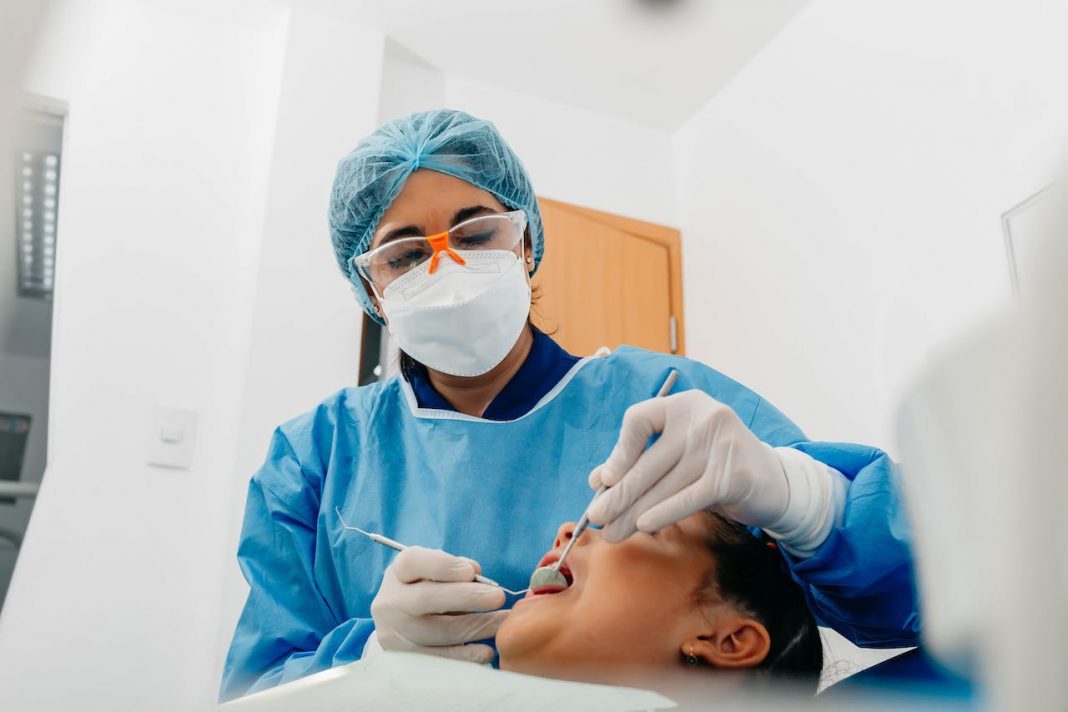Deep Cleaning Teeth – Maintaining good oral hygiene is crucial for overall health and well-being. Regular brushing, flossing, and dental check-ups play a vital role in preventing oral problems. However, sometimes we need more than just the usual cleaning routine. Deep cleaning teeth, also known as scaling and root planning, is a dental procedure that goes beyond regular cleaning to address specific oral issues. In this article, we will explore the pros and cons of deep cleaning teeth to help you decide whether it is right for you.
Table of Contents
The Advantages of Deep Cleaning Teeth
1. Removes stubborn plaque and tartar buildup
Over time, plaque and tartar can accumulate on our teeth, especially in hard-to-reach areas. Deep cleaning teeth effectively removes these stubborn deposits, which cannot be eliminated through regular brushing and flossing alone. By removing plaque and tartar, deep cleaning helps prevent tooth decay and improves oral health.
2. Reduces the risk of gum disease
One of the main benefits of deep cleaning teeth is its ability to reduce the risk of gum disease. Gum disease, also known as periodontal disease, occurs when bacteria infect the gums and surrounding tissues. If left untreated, it can lead to tooth loss and other oral health complications. Deep cleaning removes bacteria, plaque, and tartar from below the gumline, reducing the risk of gum disease and promoting healthier gums.
3. It helps prevent tooth decay
Deep cleaning teeth also helps in preventing tooth decay. By removing plaque and tartar buildup, deep cleaning eliminates the bacteria responsible for tooth decay. It provides a clean surface for the teeth, making it easier to maintain good oral hygiene and reducing the likelihood of cavities.
4. Provides fresh breath and improved oral health
Deep cleaning teeth can significantly improve bad breath caused by the buildup of bacteria in the mouth. By removing plaque and tartar, deep cleaning eliminates the source of odor-causing bacteria, resulting in fresher breath. Additionally, deep cleaning improves oral health, reducing the risk of gum infections, tooth loss, and other oral health problems.
5. Enhances the appearance of teeth
Deep cleaning teeth can have cosmetic benefits as well. By removing stains caused by coffee, tea, tobacco, or other factors, deep cleaning can help restore the natural whiteness of your teeth. Your smile will appear brighter and more attractive after a deep cleaning procedure.
6. Supports overall systemic health
Oral health is closely linked to overall systemic health. Researchers have found associations between gum disease and various health conditions, including heart disease, diabetes, respiratory infections, and even pregnancy complications. By preventing gum disease, deep cleaning teeth can contribute to better overall health.
The Disadvantages of Deep Cleaning Teeth
1. Potential discomfort during the procedure
Deep cleaning teeth involves thorough cleaning of the teeth and gums, which can cause some discomfort, especially if you have sensitive teeth or gums. However, dentists often use local anesthesia to numb the area and minimize any pain or discomfort during the procedure.
2. Increased sensitivity of teeth and gums
After a deep cleaning, you may experience increased tooth and gum sensitivity. This sensitivity is usually temporary and can be managed with desensitizing toothpaste or other oral care products recommended by your dentist. It's important to communicate any post-treatment sensitivity to your dentist, as they can provide guidance on managing it effectively.
3. Possibility of temporary gum recession
In some cases, deep cleaning may cause temporary gum recession, where the gums pull back from the teeth. This can expose the roots of the teeth and make them more sensitive. However, this recession is usually minor and resolves itself after the healing process. Your dentist will provide instructions on how to care for your gums during the healing period.
4. Risk of infection if proper aftercare is not followed
After a deep cleaning procedure, it is essential to follow proper aftercare instructions provided by your dentist. Failure to do so can increase the risk of infection. It's important to maintain good oral hygiene, avoid smoking, and attend follow-up appointments to ensure proper healing and minimize the risk of complications.
5. Requires regular maintenance and follow-up appointments
Deep cleaning is not a one-time solution. It requires regular maintenance and follow-up appointments to maintain optimal oral health. Your dentist will recommend a schedule for subsequent cleanings based on your specific needs. It's important to adhere to this schedule to ensure the long-term success of the deep cleaning treatment.
6. Cost of Deep cleaning treatment
Deep cleaning teeth can be more expensive than regular dental cleanings due to the extra time and effort involved. The cost may vary depending on the severity of the oral condition, the dental practice, and your location. The estimated cost in the US is around $100 – $350. It's important to discuss the cost and possible insurance coverage with your dentist beforehand.
Is Deep Cleaning Teeth Right for You?
Whether deep cleaning teeth is right for you depends on several factors. Deep cleaning may be necessary to improve your oral health if you have gum disease or severe plaque buildup. It is important to have a thorough discussion with your dentist or dental hygienist to understand your specific oral condition and the potential benefits and risks of deep cleaning.
Deep cleaning teeth can be an effective treatment for individuals with specific oral issues. However, it is not suitable for everyone. Your dentist will evaluate your oral health and recommend the most appropriate treatment based on your unique needs.
Preparing for and Undergoing Deep Cleaning
If you decide to proceed with deep cleaning teeth, several steps are involved in the procedure. Your dentist will examine your teeth and gums, taking X-rays if necessary. Then, they will use special dental instruments to remove plaque, tartar, and bacteria from above and below the gumline. The process may take multiple appointments, depending on the extent of the cleaning required.
To minimize discomfort, your dentist may offer local anesthesia or numbing gel to numb the area before the procedure. This ensures a more comfortable experience during deep cleaning. It's important to communicate any concerns or anxieties to your dentist, as they can provide additional support and guidance.
During and after the deep cleaning, you may experience some side effects, such as bleeding gums, slight swelling, or mild discomfort. These are normal and should subside within a few days. Your dentist will provide instructions on how to manage these symptoms and may recommend over-the-counter pain relievers if necessary.
Aftercare and Maintenance
Proper aftercare and maintenance are crucial to the success of deep cleaning teeth. Your dentist will provide specific instructions tailored to your needs. Here are some general tips for post-treatment care:
– Follow a good oral hygiene routine, including brushing twice a day and flossing daily.
– Use a soft-bristled toothbrush and non-abrasive toothpaste to avoid irritating your gums.
– Rinse your mouth with an antimicrobial mouthwash recommended by your dentist.
– Avoid smoking or using tobacco products, as they can hinder the healing process.
– Attend regular follow-up appointments as scheduled by your dentist.
Maintaining good oral hygiene and attending regular dental check-ups, even after deep cleaning, is important. This will help prevent future oral problems and keep the procedure's benefits.
Conclusion
Deep cleaning teeth can benefit individuals with gum disease or severe plaque buildup. It removes stubborn plaque and tartar, reduces the risk of gum disease, and helps prevent tooth decay. Deep cleaning can also improve bad breath, enhance the appearance of teeth, and support overall systemic health. However, it is important to consider the potential discomfort, increased sensitivity, and the need for regular maintenance and follow-up appointments.
Consulting with a dentist or dental hygienist is essential to determine if deep cleaning teeth is right for you. They will evaluate your oral health, discuss the pros and cons, and recommend the most appropriate treatment for your specific needs. Remember, maintaining good oral hygiene and regular dental care are key to a healthy smile and overall well-being.
Must Read: How I Healed My Receding Gums Naturally: A Comprehensive Guide



